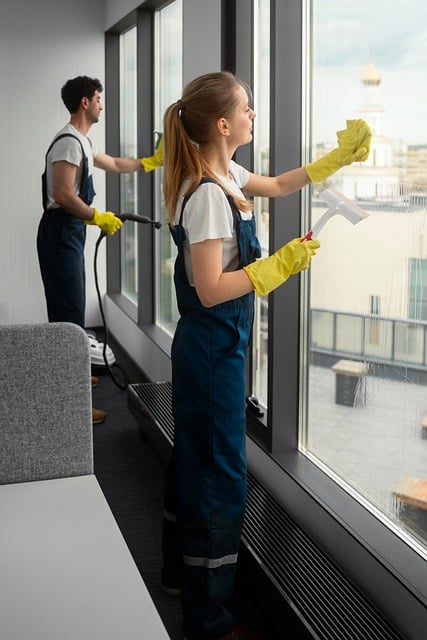Employment in the Cleaning Sector: Diverse Opportunities
Discover the breadth of employment opportunities within the cleaning sector. Responsibilities often involve utilizing specific cleaning techniques and equipment, managing supplies, and responding to client needs. These roles are fundamental to the upkeep and presentation of properties, contributing directly to public health and well-being in a range of industries.

What Types of Cleaning Jobs Are Available in Today’s Market?
The cleaning sector encompasses diverse professional opportunities catering to various specializations and environments. Commercial cleaning roles focus on office buildings, retail spaces, and corporate facilities, often requiring teams to work efficiently during off-hours. Residential cleaning specialists may work independently or with cleaning agencies to maintain private homes, providing personalized service tailored to individual client preferences.
Industrial cleaning positions involve specialized equipment and safety protocols for manufacturing facilities, warehouses, and production plants. Healthcare cleaning professionals require extensive training in infection control, biohazard management, and medical facility compliance standards. Specialized cleaning roles include crime scene cleanup, disaster restoration, window washing for high-rise buildings, and pool maintenance services—each demanding unique skills and certifications.
The hospitality sector offers housekeeping positions ranging from entry-level room attendants to executive housekeeping directors overseeing entire hotel operations. Professional cleaning services continue to diversify, creating niches for entrepreneurial opportunities and specialized career paths across numerous industries.
What Skills and Qualifications Do Cleaning Professionals Need?
Success in the cleaning industry requires more than just basic cleaning knowledge. Technical proficiency with specialized equipment—from commercial floor buffers to HEPA filtration systems—is essential for many positions. Understanding appropriate cleaning agents for different surfaces and situations prevents damage while ensuring proper sanitation. For supervisory roles, team management abilities and organizational skills become critical for coordinating cleaning schedules and staff assignments.
Physical stamina is necessary as many positions involve standing, bending, and lifting throughout shifts. Attention to detail distinguishes exceptional cleaning professionals, particularly in environments with strict quality standards. Customer service skills are increasingly valuable as client interaction becomes more common, especially for residential and specialized cleaning services.
For advancement opportunities, certifications from organizations like the International Sanitary Supply Association (ISSA) or the Cleaning Management Institute (CMI) provide validated credentials. Equipment maintenance protocols are crucial knowledge areas, as proper care of machinery extends its lifespan and ensures efficient operation. Many employers also seek candidates with basic computer skills for inventory management, communication, and documentation purposes.
How Do Professional Cleaning Services Operate and Structure Their Teams?
Professional cleaning companies typically organize their workforce into specialized teams based on client needs and service types. Large organizations often employ team leaders who oversee several cleaning technicians, reporting to operations managers responsible for scheduling, quality control, and client relationships. Cleaning businesses may structure their services around time-based models (hourly work), project-based assignments (one-time deep cleans), or recurring contract services (daily/weekly maintenance).
Staff scheduling represents a significant operational challenge, requiring careful coordination of team availability with client needs and site accessibility. Many companies utilize specialized software for route optimization, time tracking, and job assignment efficiency. Resource allocation involves strategic distribution of equipment, cleaning supplies, and personnel across multiple sites to maximize productivity.
Quality assurance protocols typically include regular inspections, client satisfaction metrics collection, and performance evaluations. Modern cleaning operations increasingly incorporate technology, with digital checklists replacing paper documentation and real-time reporting systems providing immediate verification of completed tasks. This technological integration allows for better accountability, improved client communication, and data-driven operational refinements.
What Are the Career Advancement Opportunities in the Cleaning Industry?
Despite common misconceptions, the cleaning industry offers substantial career growth potential. Entry-level positions provide foundational experience that can lead to specialized technical roles or management paths. Team leaders and supervisors typically emerge from experienced cleaning staff who demonstrate reliability and organizational abilities.
Mid-level management positions include area managers overseeing multiple locations, operations coordinators handling logistics and scheduling, and training specialists developing staff capabilities. Executive roles within larger cleaning organizations include operations directors, business development managers, and company executives who shape organizational strategy and growth.
Many professionals leverage their industry knowledge to establish independent cleaning businesses, specializing in niche markets or underserved regions. The industry also offers parallel career paths in equipment sales, chemical supply, consulting, and training services. Professional certifications through organizations like BSCAI (Building Service Contractors Association International) and IEHA (International Executive Housekeepers Association) can accelerate career advancement and provide networking opportunities with industry leaders.
What Are the Current Trends and Innovations in Cleaning Employment?
The cleaning sector is experiencing significant transformation through technological innovation and shifting priorities. Green cleaning practices have moved beyond trend status to become industry standards, with growing demand for eco-friendly cleaning agents and sustainable methodologies. Smart cleaning equipment featuring IoT capabilities now provides usage data, maintenance alerts, and performance metrics to optimize operations.
Robotics continues to supplement human workforce in specific applications, particularly for large-scale floor cleaning in retail and commercial environments. Specialized antimicrobial technologies have gained prominence, especially in healthcare and food service settings where infection control is paramount. Client satisfaction metrics have evolved beyond simple visual inspection to include ATP testing for biological residue, particulate measurement, and other objective quality assessments.
In the Netherlands, there’s particular emphasis on worker welfare within the cleaning industry, with stronger regulations around employment conditions and training requirements than many other countries. Dutch cleaning companies are also pioneering water-saving technologies and chemical-free cleaning systems that align with the country’s environmental priorities.
What Compensation and Benefits Can Be Expected in Cleaning Careers?
Compensation structures in the cleaning industry vary significantly based on specialization, experience level, and employment setting. Entry-level cleaning positions typically offer hourly wages starting around €10-13 per hour in the Netherlands, while specialized technicians in fields like hazardous materials cleaning or healthcare sanitation can earn €15-20 per hour or more.
| Position Type | Experience Level | Typical Hourly Rate (€) | Annual Salary Range (€) |
|---|---|---|---|
| General Cleaner | Entry-level | 10-13 | 20,800-27,040 |
| Team Leader | 2-5 years | 14-17 | 29,120-35,360 |
| Specialized Technician | 3+ years | 15-20 | 31,200-41,600 |
| Operations Manager | 5+ years | Salary basis | 35,000-55,000 |
| Facility Manager | 7+ years | Salary basis | 45,000-70,000 |
Prices, rates, or cost estimates mentioned in this article are based on the latest available information but may change over time. Independent research is advised before making financial decisions.
Benefits packages vary widely, with larger cleaning companies typically offering more comprehensive packages including health insurance, paid time off, and retirement plans. Many companies also provide performance bonuses based on client satisfaction metrics and quality control assessments. Additional compensation may include shift differentials for evening or weekend work, travel allowances for mobile cleaning teams, and specialized certifications funding.
The cleaning industry also offers unique advantages like flexible scheduling options, which can be particularly valuable for those balancing other commitments. Career stability remains a significant benefit, as cleaning services continue to be essential across economic fluctuations. Many employers also provide clear advancement pathways with corresponding wage increases as employees develop specialized skills or take on supervisory responsibilities.




